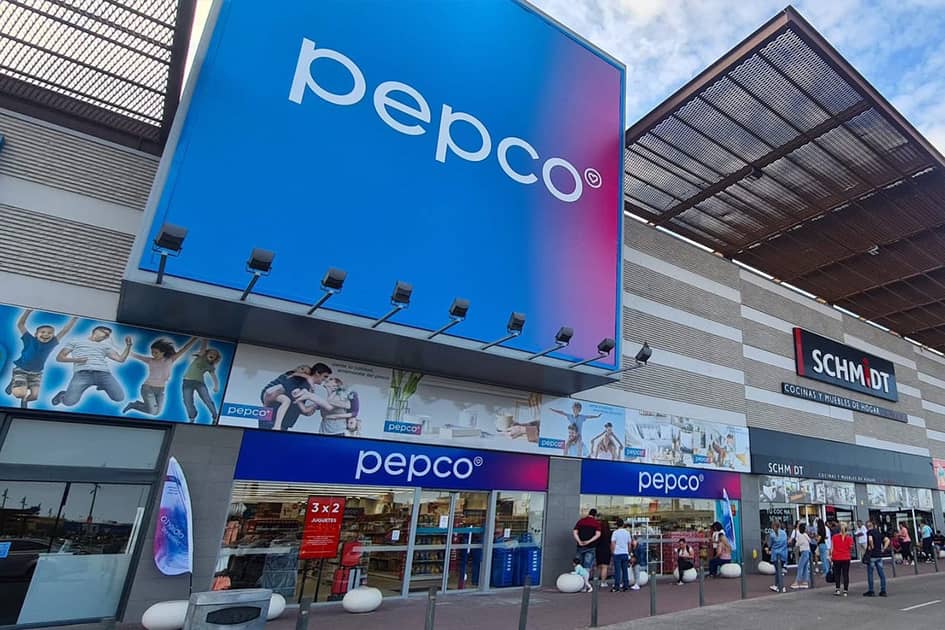Pepco storefront Credits: Pepco
Discount retail giant Pepco Group has reported strong fourth-quarter revenue growth and record full-year sales despite a “challenging market backdrop”.
The group, which owns the Pepco and Dealz brands in Europe and Poundland in the UK, generated revenue of 1.44 billion euros in the three months ended September 30, up 12.5 percent on a constant-currency basis, but up just 0.2 percent on a like-for-like basis, as it opened a record number of net stores in the quarter.
The growth was driven by a 12.6 percent constant-currency increase at Pepco and a 12.4 percent increase at Poundland Group.
However on a like-for-like basis, revenue at Pepco fell 2.4 percent in the quarter, while revenue at Poundland Group rose 4.1 percent.
Commenting on the fourth quarter results, executive chair Andy Bond said: “As first announced on September 12, the trading environment deteriorated significantly in the last quarter across Pepco’s markets, notably in Central and Eastern Europe (CEE), with weaker sales, a lower than forecast gross margin, and higher costs, resulting in a reduced level of profitability in our core markets, which we are addressing.”
He said the company’s key priorities now include “refocusing on customers in our core CEE business, implementing a more targeted growth plan in markets where we have a presence, and accelerating the transition into a single business”.
Record FY revenue driven by store openings
Looking at the company’s full-year results, Pepco group generated record revenue of 5.65 billion euros, up 17.7 percent from a year earlier, or up 6 percent on a like-for-like basis.
That came as the group opened a record 668 net new stores during the fiscal year.
“Group performance over the past year has been mixed against a challenging market backdrop,” Bond said.
In September, Pepco Group downgraded its full-year profit outlook, saying it expects to deliver underlying FY23 EBITDA of approximately 750 million euros on a constant currency basis, up from 731 million euros a year earlier.
The guidance reflected weaker-than-expected Q4 sales within Pepco’s markets. It also accounted for a lower gross margin as the group cycles more slowly through older stock and the impact of higher costs. These costs were partly due to the investment in a record number of new store openings during the fourth quarter.
Also in September, the group reorganised its management team and formed an executive committee in order to establish a strategic review to address costs and initiatives that could generate “appropriate returns in the near term” and accelerate its transformation.
That came just weeks after it was announced that group CEO Trevor Masters would be exiting the business amid plans to expand its European budget brand Pepco into new regions across Europe, including most recently to Bosnia and Herzegovina.
http://dlvr.it/SxQjP1

No comments:
Post a Comment